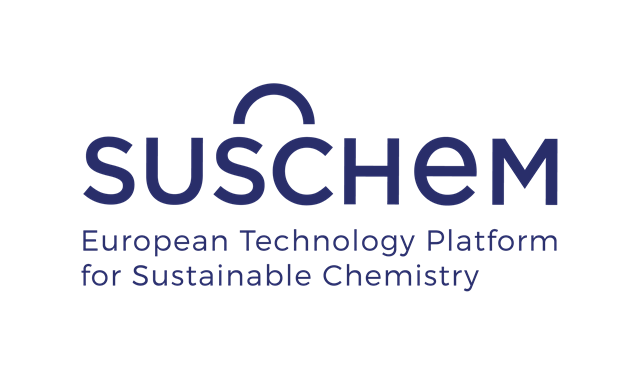This important achievement was conveyed in a letter from the Director-General of the European Commission’s DG Research and Innovation, Robert-Jan Smits, to SusChem Chairman Dr Klaus Sommer, and SusChem Coordinator Dr. Jacques Komornicki.
“Since 2004 SusChem has been making a very significant contribution to European sustainable chemistry research and innovation programmes. SusChem has been a pioneer in terms of stimulating cross-sectoral and value chain initiatives and we look forward to continuing and enhancing our contribution through Horizon 2020,” said Jacques Komornicki.
“SusChem’s involvement in FP7 has been profound for sustainable research in Europe,” said Dr. Klaus Sommer. “Now we are looking forward to truly fulfil our potential also in the area of innovation through Horizon 2020 especially with our involvement in major EU programmes such as public- private-partnerships (SPIRE and BRIDGE), future emerging technologies and key areas such as water, raw materials, key enabling technologies and skills. We are ready to make a real impact economically and ecologically all over Europe through projects that generate great research results and true innovations to bridge the gap between invention and relevant business success.”
ETP 2020 landscape
A new landscape of Commission recognised ETPs is now in place following an assessment against revised criteria for recognition defined in the ETP 2020 Strategy (see below).
ETPs span a wide range of technology areas and many, like SusChem, have played an important role in developing joint visions, setting Strategic Research and Innovation Agendas and defining research priorities that have been pursued in FP7.
As part of Horizon 2020 ETPs will:
- Develop strategies and provide a coherent business-focused analysis of research and innovation bottlenecks and opportunities related to societal challenges and industrial leadership actions
- Mobilise industry and other stakeholders within the EU to work in partnership and deliver on agreed priorities
- Share information and enable knowledge transfer to a wide range of stakeholders across the EU.
- Developing Strategic Research and Innovation Agendas
- Encouraging industry participation in Horizon 2020 and helping widen participation and build capabilities within Member States through cooperation with networks/partnerships in Member States
- Identifying opportunities for international cooperation and developing the necessary understanding to facilitate future collaboration
- Providing networking opportunities including with other ETPs to address cross-sectorial challenges and promote the move towards more open models of innovation
- Facilitating the formation of new partnerships that utilise ETP expertise.
To date, one of the main benefits of the ETPs has been their ability to provide coherent, strategic advice. Moving forward, the Commission has defined criteria that must be met for the recognition of an ETP. These criteria are:
- Alignment with Europe 2020 priorities and objectives – this could either be in terms of their ability to effectively address a Horizon 2020 societal challenge and/or develop sustainable industrial capability in a priority sector or emerging area;
- Scale of the market opportunity – this must represent a sizeable proportion of a current or potential future market and be seen to contribute to the global value chain benefiting Europe;
- EU added value - the EU's capacity, capability and skill-base to research, develop and exploit the technologies and/ or innovations in the proposed field;
- Transparency and openness – the ETP must be representative of its field, transparent in its activities and be open to new members;
- Scope – the extent to which the ETP reaches beyond a niche area and fosters interdisciplinary and cross-sector work without duplication;
- Leverage – the level of engagement and commitment of industry and Member States to the ETP, the ETPs ability to deliver on its proposed agenda and its collaboration with other ETPs on achieving common objectives.
ETPs will be a significant part of the external advice and societal engagement effort that the Commission needs to successfully implement Horizon 2020. ETPs are a key element in the European innovation ecosystem and an essential element to transform Europe into a true Innovation Union.
The Commission is planning to hold a cross-ETP workshop in the near future to discuss, amongst other issues, how the new ETP 2020 strategy can be best implemented and how relationships between the ETPs and the Commission can be further strengthened.

No comments:
Post a Comment
Please post your comment here. Please note that this newsblog is not moderated.
Note: only a member of this blog may post a comment.